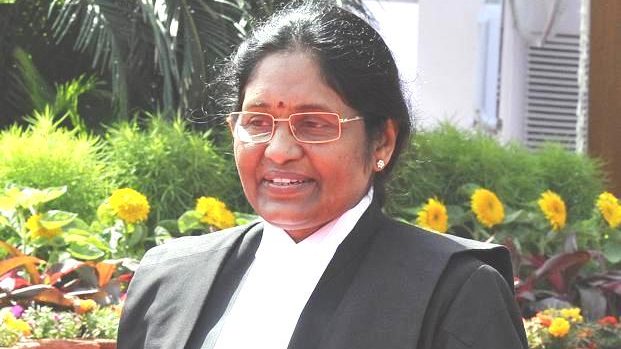The Rohini Commission on sub-categorization of Other Backward Classes (OBC) is getting flak even before submitting the report. OBCs of Uttar Pradesh and Haryana, including the sain and nai (barber), have called the commission unconstitutional and are demanding its invalidation.
The aim behind the commission
In October 2017, the union government set up a commission to examine the inequitable distribution of the benefits of reservation among various castes within OBC category included in the Central List. Its mandate was also to work out the “mechanism, criteria, norms and parameters” to implement the sub-categorization of Other Backward Classes (OBC). Nine states of India have already carried out the sub-categorization, including Maharashtra, Tamil Nadu and Bihar, following the Supreme Court verdict in the 1992 Indra Sawhney case.

The commission is chaired by Justice G. Rohini, former chief justice of the Delhi High Court, and its other members are J.K. Bajaj, director, Centre for Policy Studies, and joint secretary, Ministry of Social Justice & Empowerment, who is also the secretary of the commission. The director, Anthropological Survey of India, and the registrar general and census commissioner, are ex-officio members. G. Rohini is an OBC herself and Bajaj has edited several books including Hind Swaraj and Ayodhya and the Future India.
What is the ground reality?
In independent India, only one caste-based census has been conducted in 2011. The final findings of that census have yet to be completely public.
In 1980, the Mandal Commission proposed 27 per cent reservation for OBCs based on the caste-based census of 1931. The Mandal Commission’s recommendation was based on a census that was carried out half a century earlier while the British were still in power. The reservation was implemented in public employment in 1992 and then in higher education in 2006. Given the centuries of deprivation that these backwards have faced, these reservations have been a drop in the ocean, and even the drop has only soothed the relatively well off, often landowners, among them. The Rohini Commission has now been given the task of identifying sub-categories among the OBCs and designating reservation sub-quotas for them so that more than just a handful of castes are represented in education and public employment. The commission is basing its report on data submitted by states and the 2011 census.
Sentiment of the Backward Classes
When asked about why the nais and sains were protesting against the commission, R.K. Sain, national president, Bhartiya Samajik Party, said, “First of all, this commission has not conducted any actual ground survey or census; they are basing their report on data provided by states. A new survey must be done. For instance, there is not a single Class I officer belonging to Sain or Nai castes. There is not a single, directly appointed, IAS officer belonging to our castes in Uttar Pradesh. In Rajasthan, there is one IAS officer and one IPS officer, in Haryana there is one IAS officer and even he did not enter IAS directly – he has been promoted.”

Who then have benefited from the 27 per cent reservations? He said, “All the castes that are involved in agricultural sector have benefited. Yadavs, Kurmis, Meos, Gurjars have reaped the fruits and we have been left behind. In Haryana, there are 18 OBC MLAs, out of which Yadavs, Kurmis, Gurjars and Meos account for 15. These castes also have 3 MPs representing them. Together, these castes constitute 7 percent of the present Haryana population. The remaining backward castes constitute 36 percent of the population and there are 67 such castes. They account for 3 MLAs out of 90 and there is not a single MP representing them.”
Is there a way to fix this problem? “There should be a new survey of the totally backward classes,” he said. “The strong castes [Yadavs, Kurmis, and the like] must be put in a separate category and the overtly backward in another.”
They are also demanding that the “Karpoori Thakur formula” be implemented – 26 percent reservation, out of which 20 percent will be for backward classes, 3 percent for economically weaker sections of the general category and 3 percent for women regardless of caste, class or category. Out of the 20 percent earmarked for backward classes, 12 percent will be set aside for the most backward castes and 8 percent for the remaining castes.
Timeline
Since it was set up in October 2017, the Rohini Commission has asked for three extensions for the compilation of the report. In December 2017, the Union Cabinet chaired by Prime Minister Narendra Modi approved the extension of the term of the commission by twelve weeks – up to 2 April 2018. Again, in March 2018, it got a second extension till 20 June 2018. Now the Union Cabinet has granted the final extension up to 20 November 2018 to submit its report.
Copy-editing: Zeeshan Ali/Anil
Forward Press also publishes books on Bahujan issues. Forward Press Books sheds light on the widespread problems as well as the finer aspects of Bahujan (Dalit, OBC, Adivasi, Nomadic, Pasmanda) society, culture, literature and politics. Contact us for a list of FP Books’ titles and to order. Mobile: +917827427311, Email: info@forwardmagazine.in)
The titles from Forward Press Books are also available on Kindle and these e-books cost less than their print versions. Browse and buy:
The Case for Bahujan Literature
Dalit Panthers: An Authoritative History







